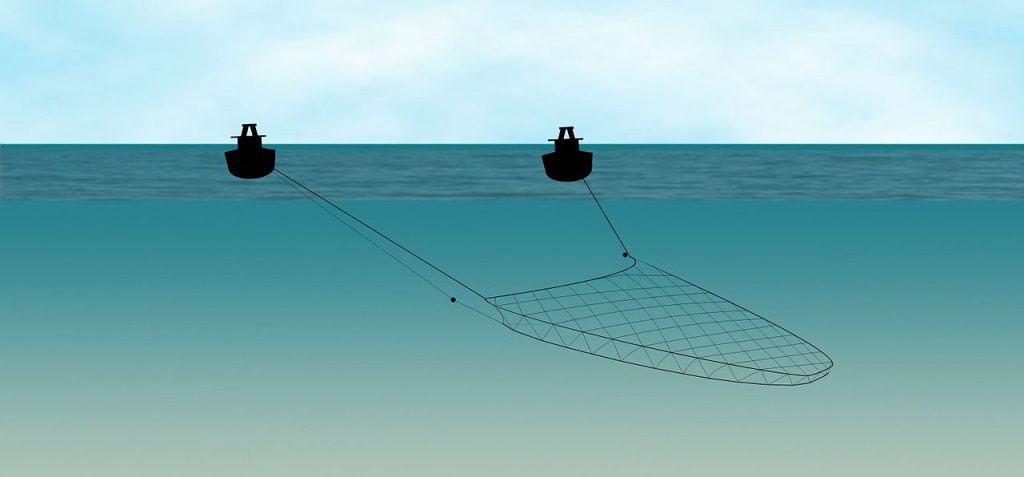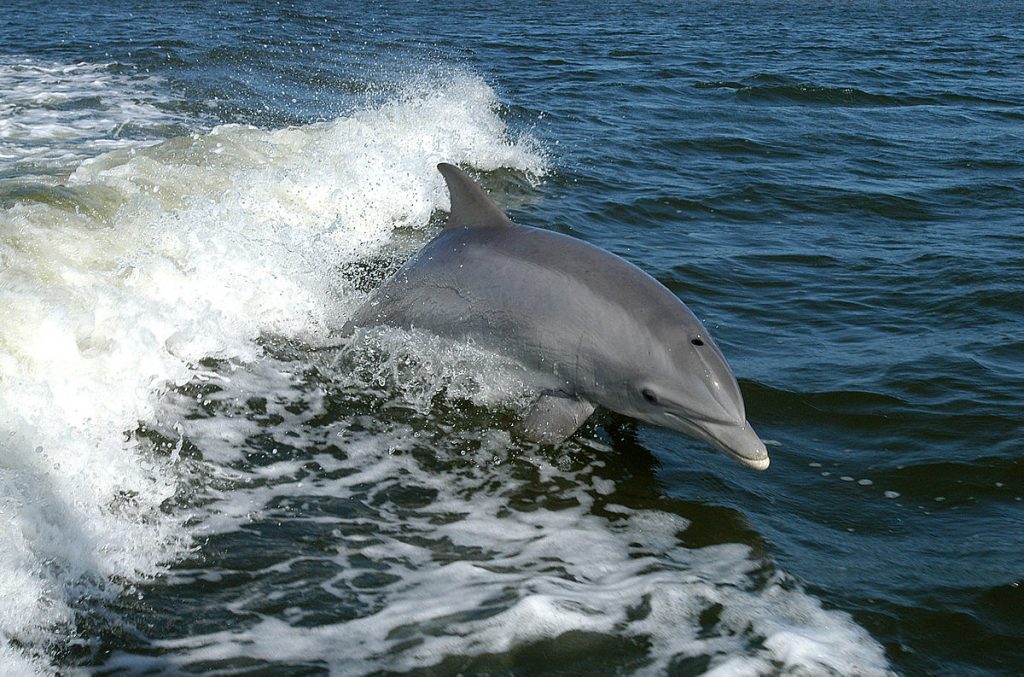Calls for Government to ban ‘destructive’ pair trawling in coastal waters

November 20th, 2017
Environmental groups have called for the Minister for Agriculture, Food and the Marine to ban the “destructive” practice of pair-trawling in Irish coastal waters.
The Irish Wildlife Trust (IWT) last week warned that it has received reports that “destructive pair trawling is underway in shallow bays and inlets” in south-west Ireland.
Pair-trawling in the mouth of the River Shannon and Kenmare Bay, which are both Special Areas of Conservation, has been reported to the conservation charity in recent weeks. Complaints about pair-trawling for sprat and herring within the Shannon Estuary SAC date back to 2001.
Pelagic deep water trawlers, designed to operate on the continental shelf, are currently allowed to pair trawl for either sprat or herring in Irish coastal waters.
The practice involves two boats dragging a single mesh net, effectively collecting up marine life from the water column. Vessels involved mainly fish during late autumn and winter.

Pair Trawling Infographic: Ecomare/Oscar Bos
Impact on marine environment
Environmental groups argue that the practice is environmentally unfriendly and uneconomic and is a poor management of a key natural resource.
Although a non-quota species, sprat populations are high in energy and provide food for the likes of whales, dolphins, seals, seabirds and larger fish. Catch per vessel through par trawling is often considered to exceed that attainable through standard bottom trawling.
In a statement, the Department of Agriculture, Food and the Marine (DAFM) told The Green News that “there are a number of potential impacts” that pair trawling in inshore waters and estuaries may have on the local ecology of these areas.
The Department added that the Marine Institute is currently undertaking an “enhanced data collection program on coastal sprat fisheries” to provide new data on by-catch rates of non-target species.
There is also a high degree of marine mammal bycatch associated with the practice. In 2005, the UK banned pair trawling for bass in UK waters off the south-west coast of England to reduce the by-catch of cetaceans such as dolphins.
On 16 October 2015, two vessels were found illegally trawling in the Waterford Harbour. The vessels were observed fishing in Waterford Harbour by the Fisheries Monitoring Centre, and the LE Ciara was sent to investigate.
The trawlers were detained and escorted to Dunmore East and handed over to Gardaí as they were found to be fishing for sprat without prior authorisation.
According to IWT Campaigns Officer, Pádraic Fogarty, the “destructive fishing practice” should be banned outright in Irish coastal areas. “It’s mad that such damaging practices are not only allowed but are totally unregulated,” he added.

Bottlenose Dolphin Photo: NASA
Letter to government department
Earlier this month, the Irish Whale and Dolphin Group (IWDG) wrote to DAFM to express concern about pair trawling in the Lower River Shannon SAC.
According to the letter seen by The Green News, at least two trawlers were spotted and photographed fishing in the estuary as far upriver as Moneypoint Power Station, Co Clare.
The IWDG letter said that this may compromise the conservation objectives of the SAC and should be subject to a full Appropriate Assessment of any implications for the site as outlined in the Habitats Directive prior to any extraction of sprat.
The IWDG requested that the department should now ensure that vessels cease fishing immediately within the SAC until a full assessment.
In a return from the DAFM on 15 November 2017, the Department said that a Marine Institute risk assessment concluded that the “infrequent” sprat fishery along the Clare and Kerry coasts is “unlikely to significantly affect Shannon Estuary bottlenose dolphin population”.
“Local resident populations of this species do not rely on the food subsidy provided by immigration of pelagic fish. Also, they do not specialise in feeding on shoaling fish and take individual prey that are larger than sprat (16cm),” the DAFM letter states.
The assessment also concluded that the risk posed by pelagic fishing through by-catch and disturbance of haul-out locations on harbour seals in Kenmare Bay was low.
An IWDG spokesperson, however, said that the group has “a number of issues with the content in this letter” and has requested a copy of the risk assessment.
[x_author title=”About the Author”]







